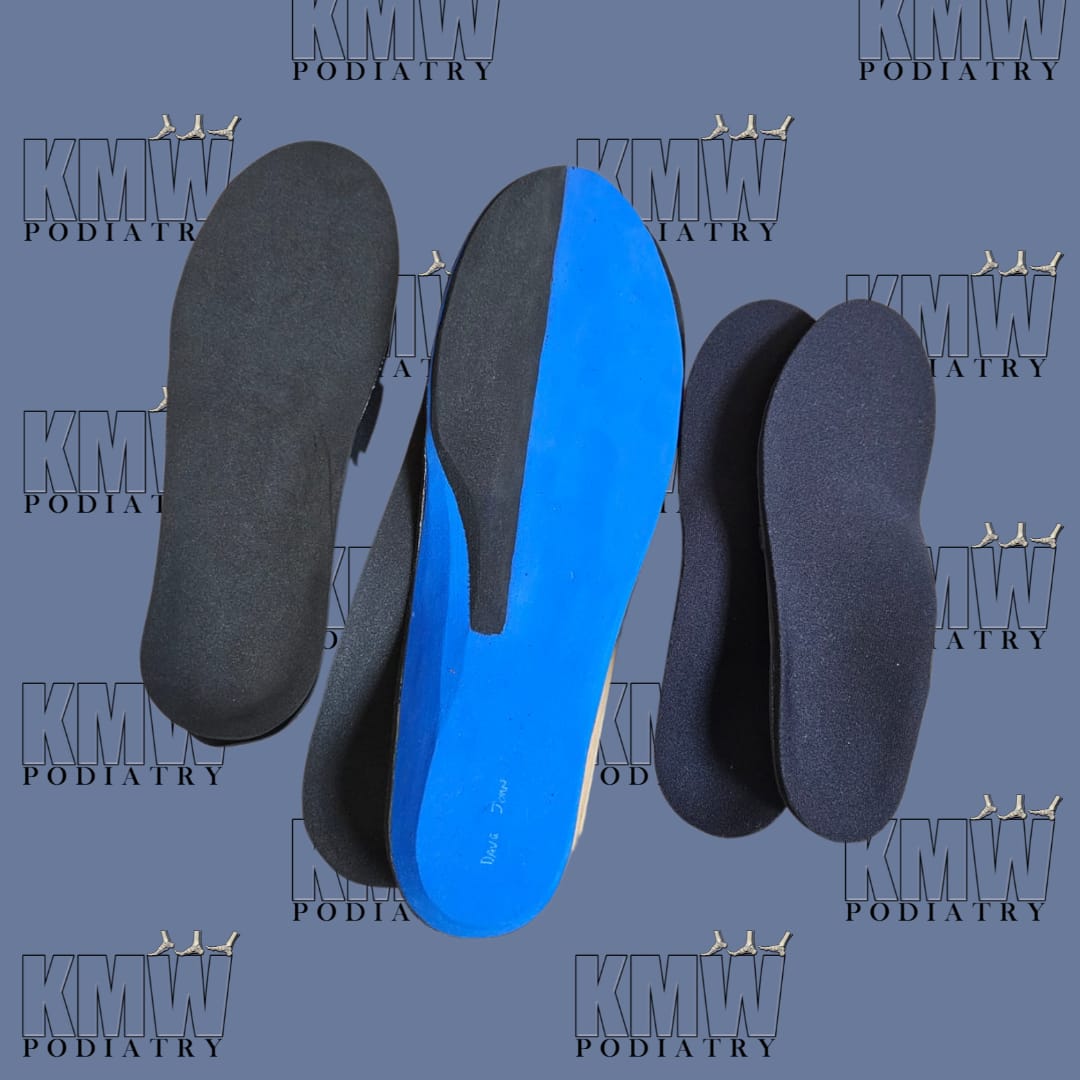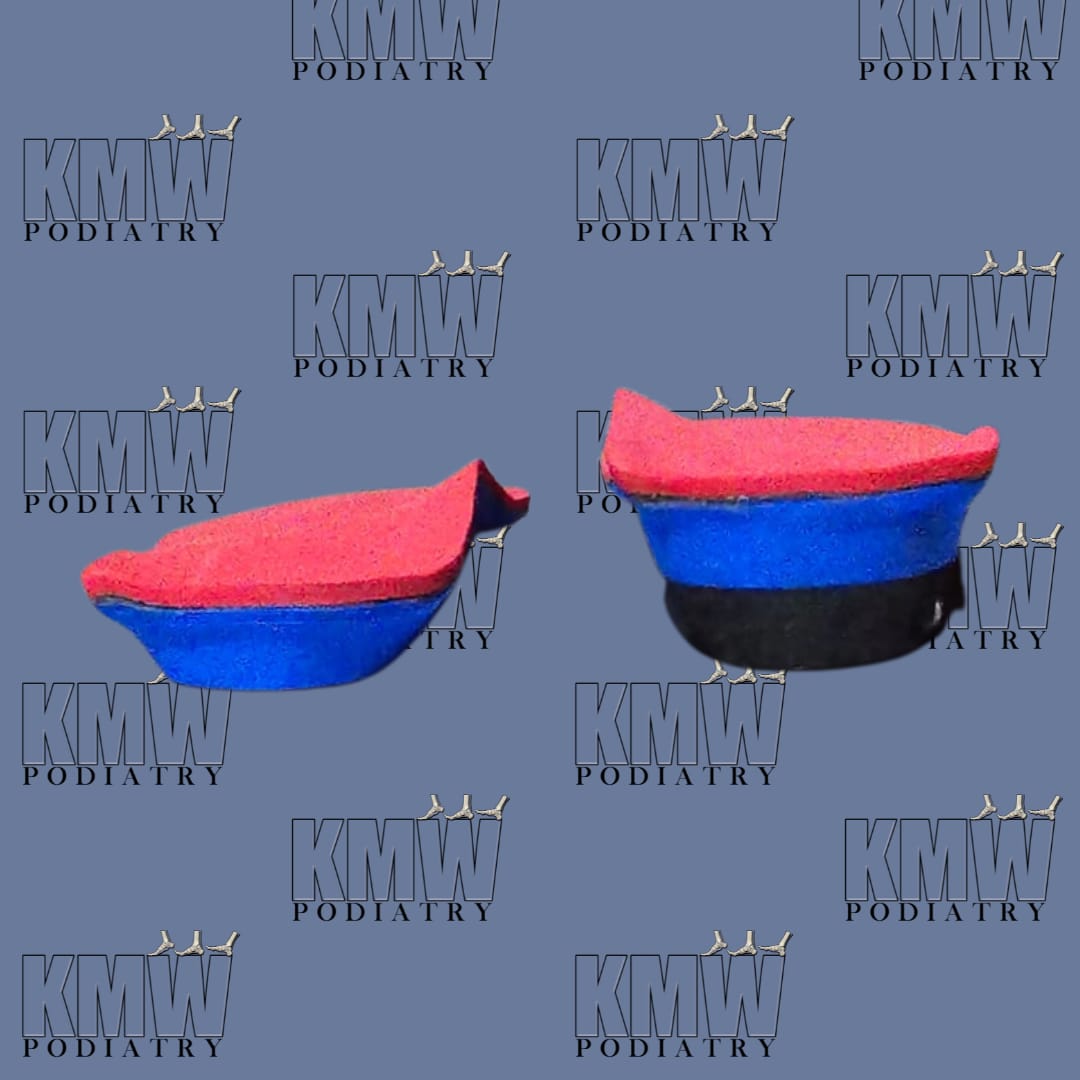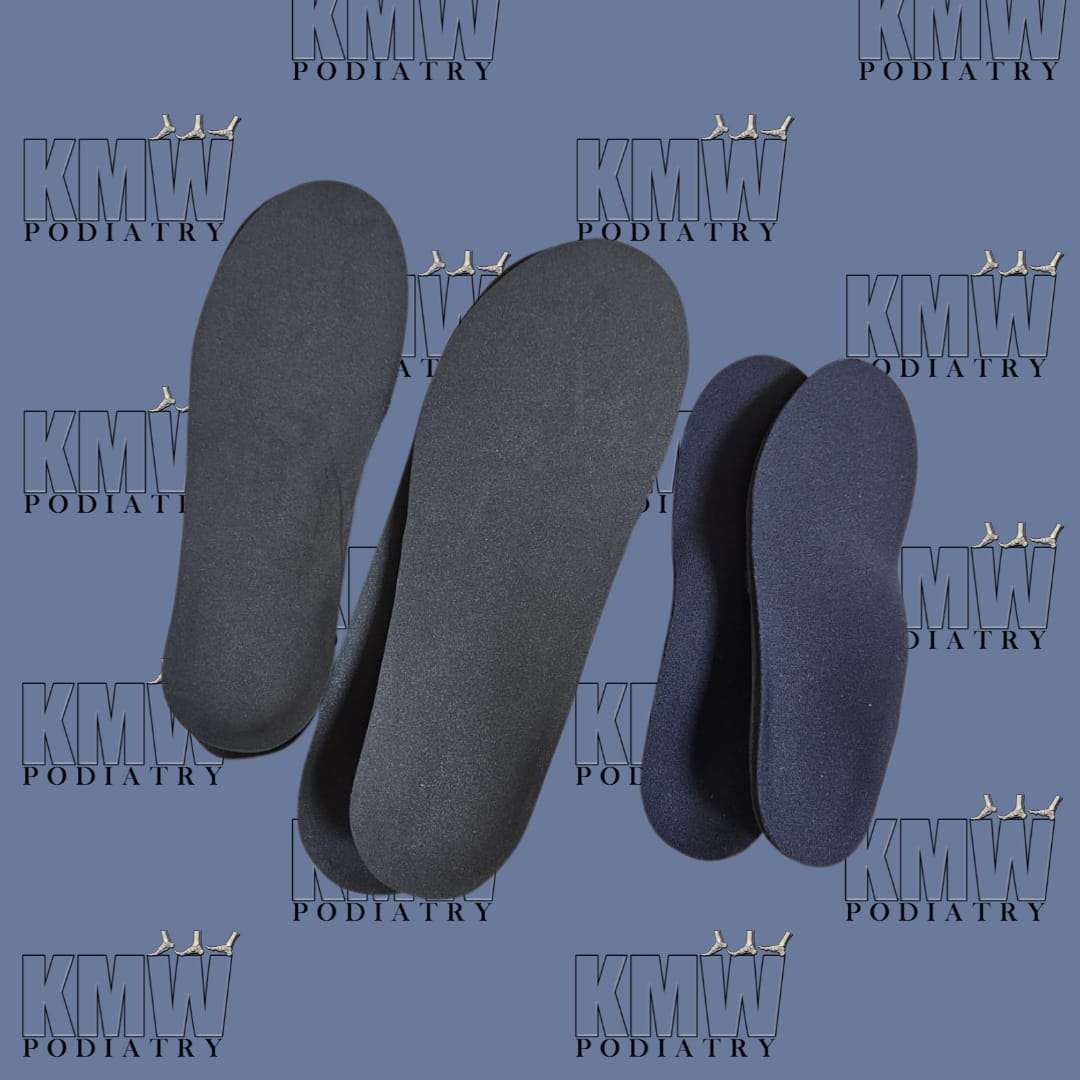Orthotics Treatment in Adelaide
Do you suffer from constant aching in the feet? You may need an orthotics.
Difference between a shoe insert and an orthotics
Inserts are not custom-made; they are designed to make your shoes adapt to your feet, but they do not solve your foot problems. Orthotics, on the other hand, are prescribed medical products offered by a podiatrist (a doctor specializing in foot care) to correct your foot condition and other related problems.
There are many conditions related to the feet, such as arthritis, bursitis, plantar fasciitis, neuroma, and diabetes. All these cases need medical intervention. Orthotics prescribed by a qualified podiatrist not only help remedy your feet-related problems, like pain and discomfort, but also help you avoid surgery for many foot-related issues.

Symptoms of Orthotics
Our team of podiatrists closely examines your feet, and takes stock of various symptoms to arrive at a conclusion if you actually need an orthotic. Here are some symptoms and signs that may need a visit to a podiatrist to check if you need an orthotic:
Persistent and/or irregular foot pain while walking or standing.
Feet tend to be swollen
Feet become injury-prone
Feet tend to be inflamed
If you are experiencing any of these symptoms, it is important to seek professional advice. At Keep Me Walking Podiatry in Adelaide, we will assess you and may require some follow-up imagining, such as an X-Ray.


Causes of Orthotics
Our podiatrists diagnose your foot condition to check if you have a superficial or underlying condition and suggest a custom orthotic that gives you the best results. Here are some of the common reasons one may need an orthotic:
- Presence of arthritis
- Presence of plantar fasciitis
- Back pain
- Presence of bursitis
- Spinal deformity
- Hammer toe
- Flat foot
- Presence of corns
- and calluses
- Presence of bunions
- Diabetes
- Heel spurs
- Injuries
Why Choose Us for Your Care?
At KMW Podiatry, we provide exceptional podiatry services across Adelaide, ensuring every patient receives personalized, high-quality care.
Health Scheme Support
We support patients under Work cover, GP care, NDIS, DVA, SAH, and other government schemes, providing consistent care for everyone.
Latest Technologies
We adopt the latest technologies to offer advanced podiatric care, providing innovative solutions for your foot health.
Convenient Locations
With clinics In stand-alone locations, GP Medical centers and Home Visits, our services are easily accessible, making it convenient for you to receive top-notch care.
24/7 Emergency Help
We are available around the clock for emergency assistance, ensuring you get the help you need whenever you need it.
Treatment Options for Orthotics
When you have a foot condition that makes it difficult for you to walk or even stand, a shoe insert will not solve the problem, an orthotic will. There are many types of orthotics depending on specific feet-related problems, and your podiatrist is the best judge of what works for your specific case.
Our team of medical experts closely examines your medical condition, your medical history, and feet-related symptoms to suggest the best orthotic product for you. For instance, if you have a hammer toe, we may suggest footwear with deep or wide toe box. If you have diabetic ulcerations, a different line of orthotics like full-contact cushioned orthotics may be prescribed among other options. Thus depending on a specific medical condition, an orthotic is prescribed by our team of doctors.
FAQs for Orthotics Treatment
Why should I go for an orthotic device? Will a shoe insert not help?
A shoe insert is merely used for cushioning for the shoe, so that it adapts to your feet. But unlike a shoe insert which you can buy from a store, an orthotic product is available only with a doctor or a podiatrist. An orthotic product is recommended for specific foot-related problems and underlying diseases that cause foot problems.
An orthotic can also help with correcting and preventing foot deformities. Your overall foot and ankle functioning works at its optimum with the help of an orthotic device. For example, a heel cushion can reduce the impact on the feet and ankle, when your run and a heel flare can prevent an ankle sprain. So, an orthotic product can also help reduce the risks of future injuries.
How will you diagnose my foot problem, before suggesting an orthotic?
Do not take your feet problems lightly. If you feel that you are having problems with your movement, especially your ankle and feet, please get in touch with a podiatrist. She or he will check if you need an orthotic device to make life easy and hassle free for you.
